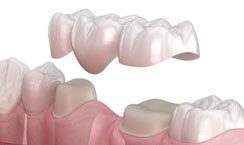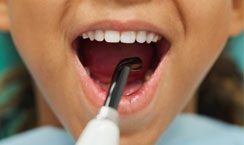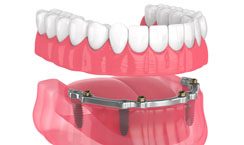Our
Treatments
Try
Booking Online
We have the option for patients to book several of our treatments online, including New Private Patient Consultations and Oral Hygiene Assessments. Use the links below to find out more and book an appointment.
Our
Private Fees
Please note that prices listed here are an estimation only and subject to change.
Prices may differ according to many factors. Please discuss with a member of staff
for more information.
Prices correct as of 1st April 2025.
- New Patient Exam (inc 2 X-rays)£79.00
- Emergency Appointmentfrom £88.00Non-registered patients
- Clear Aligners (single arch)from £1433.00
- Clear Aligners (dual arch)from £2315.00
- Routine Hygiene Servicesfrom £84.50
- Routine private examination£63.00
- Teeth Whiteningfrom £305.00
- Tooth Fillingfrom £127.00
- Sedationfrom £283.50
- Composite Veneersfrom £342.00
- Crownsfrom £500.00
- Dental Implantsfrom £3000.00
- Denturesfrom £441.00
- Invisalign® Clear Bracesfrom £4200.00
- Periodontal Therapyfrom £200.00
- Root Canal Therapyfrom £500.00
Meet
Our Team
The team at Alpha Dental Care Stockton are a highly skilled and dedicated group of professionals who are committed to providing exceptional dental care. With their expertise in various areas of dentistry, they strive to ensure the utmost comfort and satisfaction of their patients. Their friendly and compassionate approach creates a warm and welcoming environment, fostering trust and building long-lasting relationships with those they serve. Patients can trust the team at Alpha Dental Care Stockton for comprehensive dental solutions delivered with precision and care.
Nina Wilson
Dentist
GDC Reg : 71867
Sumrah Hamid
Dentist
GDC Reg : 210052
Rachel Kirk
Dentist
GDC Reg : 284391
Evie Watts
Foundation Dentist
GDC No : 318640
Caitlin Beversluis
Dental Therapist
GDC Reg : 273563
Sarah Cain
Dental Therapist
GDC Reg : 222637
Corri Sinclair
Practice Manager
GDC Reg : 278206
Amy Pickard
Practice Support Manager
GDC Reg : N/A
Michael O’Neil
Associate Dentist
GDC Reg : 309449
Sarah Louise Price
Lead Dental Nurse
GDC Reg : 292568
Victoria Hodgson
Dental Nurse
GDC Reg : 146919
Karlene Garwood
Dental Nurse
GDC Reg : 290031
Emily Healey
Dental Nurse
GDC Reg : 248385
Lucie Smith
Dental Nurse
GDC Reg : 293000
Sophie Richardson
Dental Nurse
GDC Reg : 280199
Olivia Atkinson
Dental Nurse
GDC Reg : 305232
Jasmin Wills
Dental Nurse
GDC Reg : 306288
Leah Wills
Dental Nurse
GDC Reg : 295380
Jublin Begum
Dental Nurse
GDC Reg : 282302
Olivia Bray
Dental Therapist
GDC No. 310585
Faith Walker
Trainee Dental Nurse
Elizabeth Smith
Trainee Dental Nurse
GDC Reg : N/A
Annabelle Pooley
Dental Nurse
GDC Reg : 321005
Kim Hilliard
Receptionist
GDC Reg : N/A
Rachel Whaley
Receptionist
GDC Reg : N/A
Jennifer Burridge
Receptionist
GDC Reg : N/A
Odette Brennan
Receptionist
GDC Reg : N/A
Catherine Sutcliffe
Receptionist
GDC Reg : N/A
Niamh Slavin
Receptionist &
Decontamination Nurse
Customer
Reviews
Get
in Touch
Location & Opening Times
Monday: 08:30 – 17:30
Tuesday: 08:30 – 17:30
Wednesday: 08:30 – 17:30
Thursday: 08:30 – 19:00* (by appointment only)
Friday: 08:30 – 17:00
Weekend: Closed
Wellburn Road,
Fairfield, Stockton-on-Tees, TS19 7PP
































